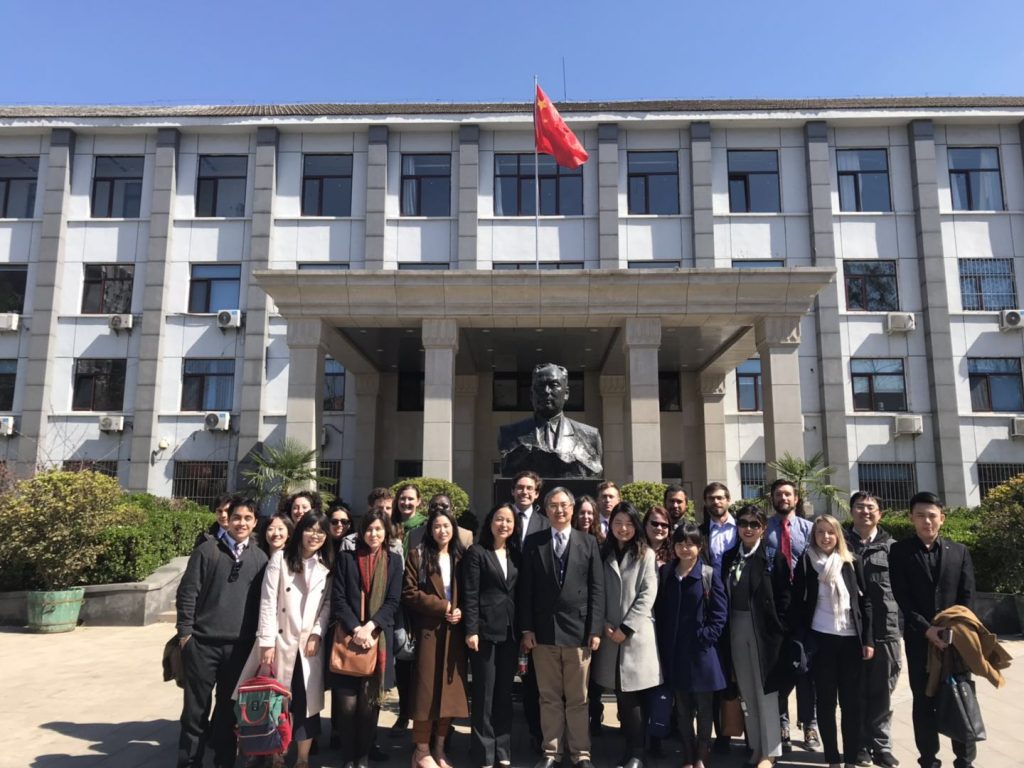EAST ASIA PRACTICUM (CHINA & JAPAN)

The degree to which the East Asia Practicum broadened my horizons and revived my intellectual appetite was nothing short of incredulous.
As most of my time were usually dedicated to interpretation practice, the subject matter for this practicum was a welcome treat. It spurred the part of me that had always been passionate about political science and history. Along with the weekly readings prior to the trip, it gave me a more solid foundation for understanding current world affairs. Through the exchanges of fresh observations in our meetings with local experts, I was able to foster some critical analytical skills for dissecting government and policy decisions. This will in turn help me absorb news and remain informed faster, as well as grasp economic and political topics better, all core topics in the interpretation industry.
As an accompanying interpreter, it was a successful learning experience overall, with real challenges that tested my ability to conduct myself as a professional in relation to the assignment and clients. It taught me how to recognize and convey the boundary between my responsibilities and my rights ie. what and how I can request in order to do my job right. My fumble over these hurdles this time reinforced these valuable lessons in my head so that I may handle similar situations better in the future.
On a deeper level, my social persona was able to breathe. The demands of the interpretation program attested to the popular online meme of struggle – students could only realistically choose two, never all, of the three angles in a triangle: sleep, study, and social life. I certainly feel that after four semesters of grueling, reclusive practices that required critical analysis of minute details, I had forgotten what it meant to be social. My persona, which felt like a flat, wrinkled balloon, was able to inflate again through this experience abroad with students from other disciplines.
On the other hand, I had assumed that cultural shock would not be as evident in a place where I spoke the language fluently, blended in effortlessly, and to a certain degree identified with the local culture. Perhaps due to my preconception of what Beijing might be like based on my life in Taiwan and Japan, the shock was more salient. For instance, I was expecting the manner and style of those in the service and hospitality industries to be similar to those in Taiwan, a region I thought was the best approximation of Beijing. Rather, there was a profound difference in the understanding of professionalism. Hawking and hollering out in a casual tone that appeared to be patronizing was in fact the common, acceptable way of conducting businesses. It made me realize that having cultural shock does not means immunity forever. It will happen repeatedly as I continue to age and internalize concepts and values. Precisely because of that, I have to constantly re-evaluate and challenge them, by throwing myself in front of new, uncomfortable things.
That is exactly the mindset that drew me to interpretation in the first place. It involves constantly confronting new and unfamiliar content. I am glad to say that after a fruitful venture abroad, I have remembered the things that motivated me but was briefly forgotten, taken a good look at myself outside of my studies, and rediscovered what is important to me personally and professionally.



You must be logged in to post a comment.